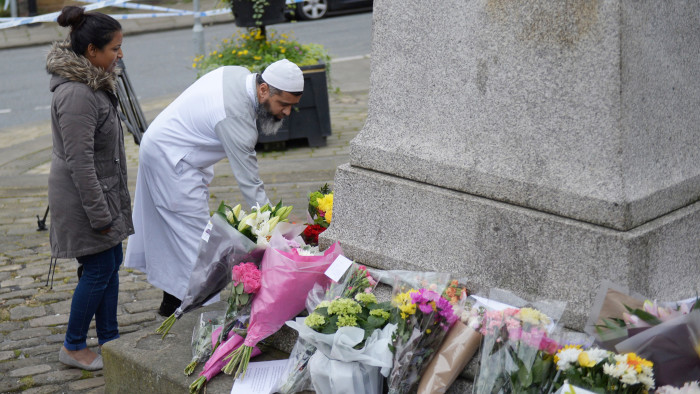Jo Cox’s death should temper the rest of the EU debate and beyond

Roula Khalaf, Editor of the FT, selects her favourite stories in this weekly newsletter.
The killing of Jo Cox, the British Labour MP, has shocked the country. It is too early to give an explanation for what has happened — but the suspension of all campaigning in the EU referendum is an appropriate response. We do know, however, that this is an attack on British representative democracy.
Cox, a bright newcomer to Parliament who made her mark at Oxfam and elsewhere, was simply doing her job when this senseless act took place. For MPs, holding surgeries is a crucial part of being an elected representative in an open society, and this tragedy could have a chilling effect — not just on the referendum campaign but also on British politics.
In the year since she was elected to the House of Commons, Cox has been applauded from all sides, particularly for her campaigning on Syrian refugees. To gain a measure of what a loss she is, look at the tributes: from the heartfelt statement by Jeremy Corbyn, leader of the opposition Labour party, to the recollection by Andrew Mitchell, the Conservative MP, of how a “wicked old Tory” became friends with a bright young Labour counterpart. The greatest words of all, however, are from her husband, Brendan Cox, who called on everyone “to fight against the hatred that killed her”.
Over the past 24 hours we have seen the best of British politics. No one has tried to take political advantage; everyone has been dignified and respectful to their colleague. People are understandably angry but that anger has not been abused.
In recent weeks there has been a sense that politics in the UK has become too personal, too visceral and too intense. By its nature, the referendum campaign stirs passions. It is a political question, perhaps the biggest in a generation, that will determine the future of our country, and it could have serious economic consequences.
But even the biggest questions sometimes need to be put into perspective. When the campaign resumes, politicians would be wise to reflect on the tone of their remarks — particularly on immigration, where Cox repeatedly called for tolerance.
In an interview with the Huffington Post this year, Cox was asked what was the one thing she would like to change about British politics. “A more consensus style of politics looking at problems and getting the best brains involved in them to find solutions,” she said.
We would all do well to heed her advice.
Comments